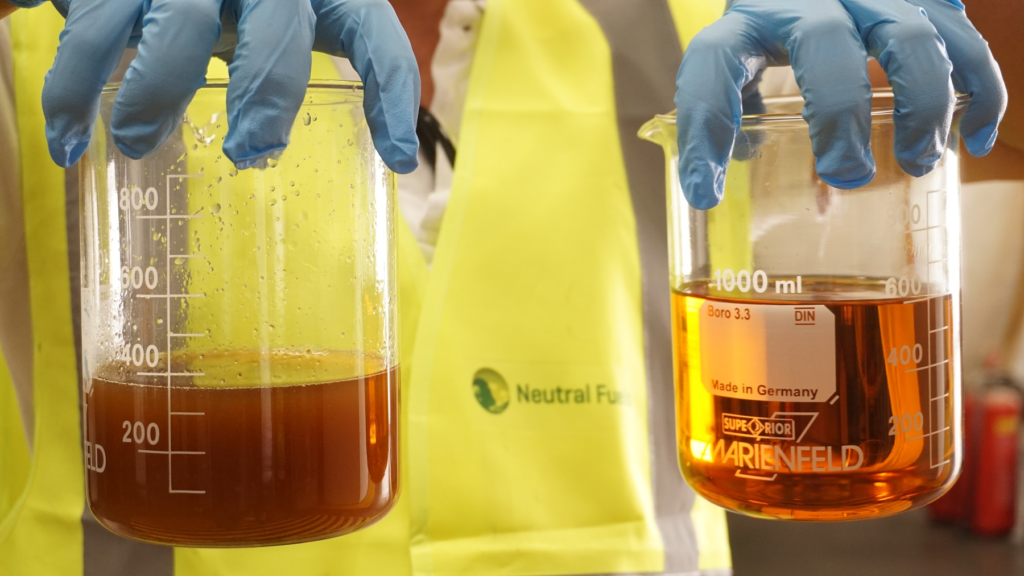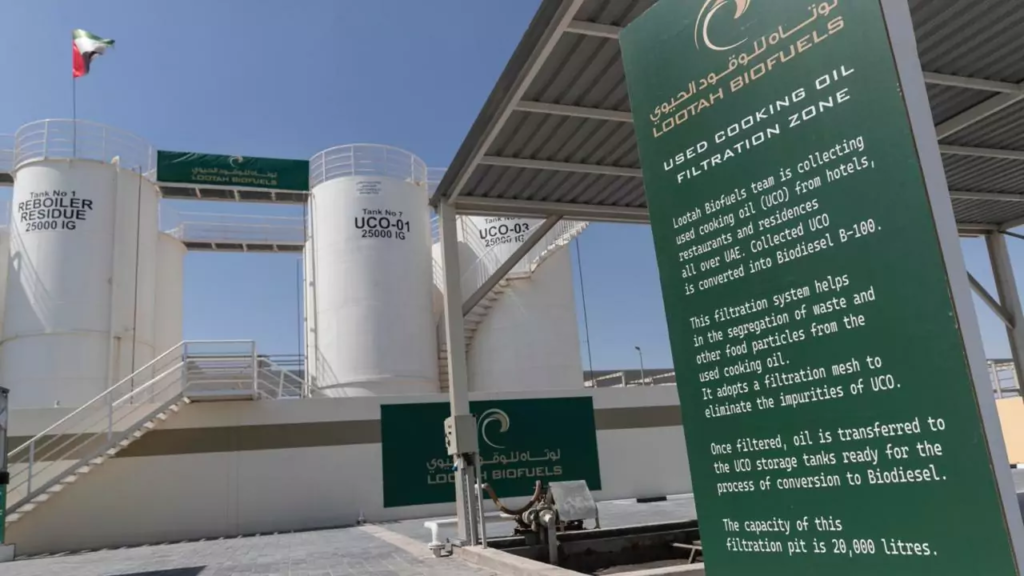In a major step toward sustainable living, Dubai has announced a large-scale project to collect used cooking oil from homes and businesses and convert it into biodiesel. This bold initiative, spearheaded by Dubai Municipality in partnership with BiOD Technology FZCO, is part of the city’s ongoing efforts to develop cleaner, more circular waste management systems that benefit the environment and economy alike.
Turning Kitchen Waste into Green Energy
What many residents pour down the drain could soon be used to fuel cleaner transport. The citywide initiative will focus on collecting used cooking oil (UCO) and fats, oils, and grease (FOG) from households, restaurants, and commercial kitchens. Refiners will process these waste oils into B100 biodiesel, a sustainable and non-toxic fuel alternative that significantly reduces carbon emissions.
This project doesn’t just aim to cut down on waste. It also helps avoid the costly blockages in Dubai’s sewage systems caused by improperly discarded oil, all while feeding into the city’s circular economy objectives.
A Partnership Backing Green Innovation
The agreement between Dubai Municipality and BiOD Technology, a subsidiary of DUBAL Holding, was signed in the presence of top municipal and company representatives. Public and private partners have collaborated to support the city’s Vision 2030 targets for environmental stewardship and clean energy development.
Adel Al Marzooqi, CEO of the Waste and Sewerage Agency at Dubai Municipality, remarked that this partnership shows how innovation in waste management can also help protect infrastructure and push forward long-term sustainability plans.
Restaurants and Homes: Key Players in the Collection Process

Restaurants, cafes, and food establishments are expected to be among the largest contributors to the new oil collection programme. These businesses generate significant amounts of waste oil daily, making them critical to the success of the initiative. However, households are equally encouraged to participate in the programme, with future plans including designated collection points and awareness campaigns.
The collaboration also ensures that approved collection and recycling practices are followed—keeping the entire process aligned with both local and global environmental standards.
Inside the Process: From Oil to B100 Biodiesel

Once collected, the waste oil will be transferred to BiOD Technology’s processing facilities. Here, it undergoes treatment to produce B100 biodiesel, a high-grade renewable fuel suitable for transportation and industrial use. Compared to conventional diesel, this biofuel produces fewer emissions, making it a cleaner choice for energy consumption.
By embracing this technology, Dubai moves closer to reducing its dependence on fossil fuels while promoting cleaner alternatives that can be scaled across sectors.
Supporting the UAE’s Circular Economy and Climate Goals
This project fits within the larger framework of the UAE’s Green Economy goals and its Net Zero 2050 commitments. It encourages responsible consumption, waste reduction, and reuse of resources that were previously seen as pollutants.
As cities globally face the challenge of sustainable urbanisation, Dubai’s proactive approach sets an example in the region for converting household-level actions into impactful climate solutions.
Cleaner Urban Infrastructure
Beyond the fuel benefits, the initiative is expected to bring operational advantages as well. By reducing the amount of grease entering drainage systems, Dubai can lower maintenance costs, minimise pollution risks, and extend the lifespan of its water treatment infrastructure.
This kind of innovation isn’t just environmentally responsible—it’s also financially sound.
Next step for Dubai
Dubai Municipality is expected to roll out guidelines for participation in the coming months. These will include details on how households and businesses can safely store and hand over their used oil. The programme will also run public outreach campaigns to encourage participation and build awareness about the environmental harm caused by improper disposal of cooking oil.
Leading the Region in Waste-to-Energy Solutions
Dubai’s cooking oil biodiesel project builds on the city’s recent efforts to lead the region in waste-to-energy innovation. From converting landfill waste into electricity to rewarding plastic bottle returns, the city continues to invest in scalable, high-impact sustainability programmes.
This latest move reflects Dubai’s readiness to tackle environmental challenges through action, not just policy.
Read More:
- RTA Rolls Out Next Wave of Marine Station Upgrades in Dubai – Social Kandura
- UAE Residents Rushing To Book Final Wizz Air Tickets Before Shutdown – Social Kandura
For more local news, environmental initiatives, and things to do across the UAE, follow Social Kandura for timely updates and stories that matter to you.











